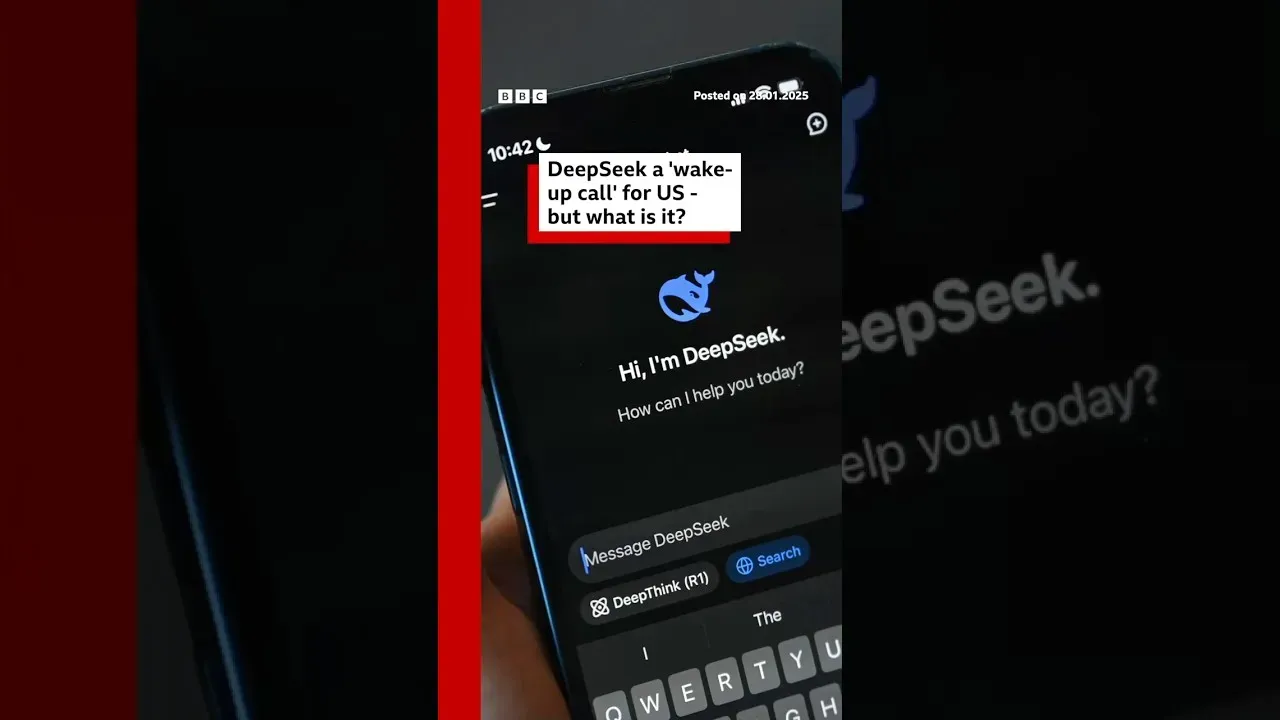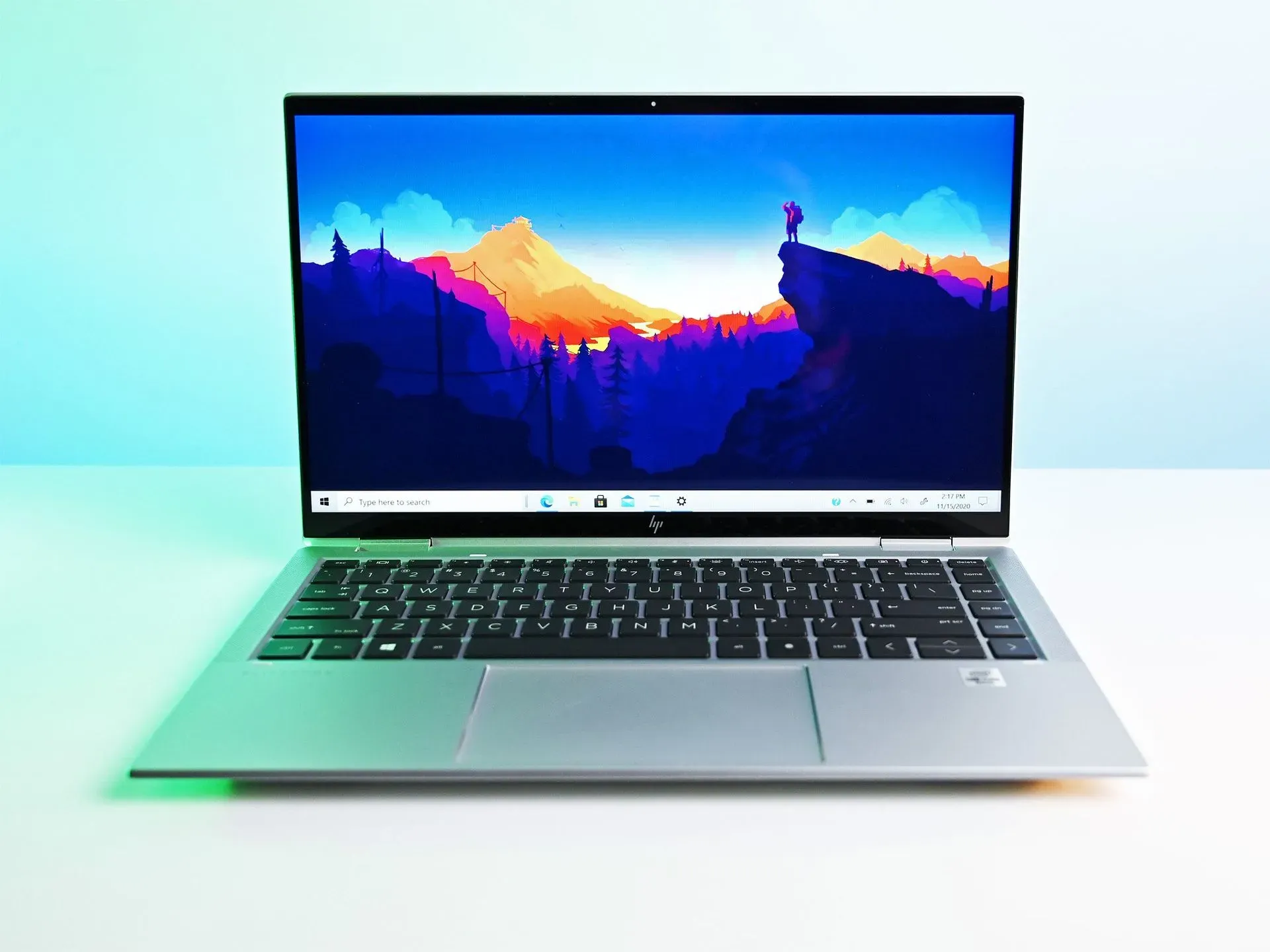DeepSeek AI is poised to become a cornerstone of Apple’s next generation of iPhones, despite facing significant hurdles in global markets. As Apple strives to enhance its Apple Intelligence suite, the integration of DeepSeek AI could revolutionize user experiences, particularly in regions like China where traditional AI solutions are restricted. However, the controversial nature of DeepSeek, which has already faced a ban in several countries due to AI privacy concerns, raises questions about its adoption and the implications for consumer trust. With rising tensions surrounding data practices, including the recent DeepSeek ban in Taiwan, Apple must navigate a complex landscape of regulatory challenges. As competitors continue to leverage advanced technologies, the pressure is on Apple to ensure that its iPhone AI offerings not only meet consumer expectations but also adhere to global standards of privacy and security.
The advent of advanced artificial intelligence solutions, such as those offered by DeepSeek, marks a critical moment for tech giants like Apple. With the promise of enhanced user engagement through iPhone AI capabilities, companies are racing to integrate cutting-edge technology into their devices. However, as evidenced by the restrictions on DeepSeek in various regions, including the recent prohibitions in Taiwan and Italy, there is a growing emphasis on safeguarding personal data amid escalating AI privacy concerns. As Apple Intelligence aims to compete with local rivals in markets like China, the reliance on DeepSeek AI raises vital discussions regarding data security and ethical AI use. Thus, the intersection of innovation and privacy in the realm of artificial intelligence continues to shape the future of mobile technology.
The Rise of DeepSeek AI in Apple Intelligence
DeepSeek AI is gaining traction as a potential game-changer for Apple Intelligence, especially for the upcoming iPhone models. This integration is particularly crucial for Apple to enhance its AI capabilities in a competitive market, especially in regions like China where local tech rivals are advancing rapidly. As Apple aims to leverage DeepSeek, the technology aligns closely with the demands of the modern consumer who seeks smarter, more efficient devices. The collaboration could potentially elevate Apple’s status in the AI domain, bringing advanced functionalities similar to those found in other AI frameworks. With advancements in iPhone AI, users can expect a more personalized and intuitive experience, marking a significant shift in Apple’s product offerings.
However, the integration of DeepSeek AI also raises questions about data privacy and regulatory compliance. As Apple tries to navigate these waters, it is essential to consider the implications of using a Chinese AI model in the face of increasing scrutiny from various governments. Apple must ensure that the data collected through DeepSeek complies with local regulations to avoid potential backlash. The privacy concerns surrounding AI technologies, particularly in light of the recent bans in countries like Italy and Taiwan, underscore the importance of transparency and consumer trust in the evolving landscape of technology.
AI Privacy Concerns and the DeepSeek Ban
The recent bans on DeepSeek in countries like Italy and Taiwan highlight significant AI privacy concerns that cannot be overlooked. These actions reflect a growing unease regarding how AI technologies handle and process personal data. In Italy, the government took proactive measures by blocking DeepSeek from app stores and initiating investigations into its data practices. This set a precedent for other nations, including Taiwan, to assess the risks associated with deploying such technologies within government agencies. The emphasis on information security is paramount, as citizens demand greater accountability from tech companies regarding their data management practices.
As AI continues to permeate various sectors, the implications of privacy breaches become more pronounced. The DeepSeek ban serves as a cautionary tale for companies looking to implement AI solutions without robust privacy safeguards. For tech giants like Apple, the challenge is to balance innovation with protecting user data, particularly when integrating models that face regulatory challenges. The ongoing scrutiny surrounding DeepSeek’s practices calls for a reevaluation of how AI systems are developed and deployed, ensuring that ethical considerations are at the forefront of technological advancement.
Navigating Regulatory Challenges with DeepSeek AI
Apple’s attempt to integrate DeepSeek AI into its iPhone offerings reflects a strategic maneuver to navigate the complex regulatory environment in China. By opting for a locally developed AI model, Apple is attempting to sidestep the challenges that come with using international AI services like OpenAI’s ChatGPT, which faces restrictions in China. This approach not only allows Apple to tailor its services to local preferences but also demonstrates a commitment to complying with Chinese regulations, which are notoriously stringent when it comes to technology and data privacy.
The implications of this move extend beyond just product functionality; they could redefine the competitive landscape of the smartphone market. By harnessing DeepSeek, Apple aims to regain its footing in a region where it has struggled against fierce competition from local brands. However, the success of this strategy hinges on the ability to address the underlying concerns regarding data privacy and security. As more countries scrutinize the use of Chinese AI technologies, Apple must remain vigilant about regulatory compliance to prevent further bans that could limit its growth and innovation.
The Competitive Edge of Apple Intelligence
Apple Intelligence is set to provide a competitive edge in the crowded smartphone market, especially with the anticipated integration of DeepSeek AI. As consumers increasingly look for devices that offer enhanced functionality and intelligence, Apple’s commitment to incorporating advanced AI capabilities could significantly impact user experience. Features powered by DeepSeek AI may enable smarter personal assistants, improved camera functionalities, and more intuitive app interactions, all of which are essential for capturing market share in a tech-savvy consumer base.
However, the success of Apple Intelligence will largely depend on the public’s perception of DeepSeek in light of recent controversies. While the AI promises innovative advancements, consumers are becoming more aware of privacy implications and the ethical considerations surrounding data usage. Apple must not only focus on the technical aspects of the integration but also on building consumer trust through transparency and robust data protection measures. This holistic approach will be crucial for Apple to solidify its standing as a leader in AI-driven technology.
Understanding the Impact of AI Regulations
The landscape of AI regulations is evolving rapidly, influenced by growing concerns over privacy and security. The bans on DeepSeek AI by countries such as Italy and Taiwan illustrate the shifting attitudes toward technology that processes personal data. As these nations aim to protect their citizens, they set a precedent that could influence regulatory frameworks globally. This environment presents challenges for companies like Apple, which must navigate a maze of regulations while trying to innovate and meet consumer demands.
As Apple looks to expand its AI capabilities through DeepSeek, understanding the nuances of these regulations will be critical. The company needs to engage with policymakers and industry stakeholders to advocate for balanced regulations that promote innovation while protecting user rights. Additionally, Apple must be prepared to adapt its strategies to comply with varying regulations across different markets, ensuring that its AI implementations remain agile and responsive to the legal landscape.
Consumer Reactions to DeepSeek Integration
As Apple prepares to integrate DeepSeek AI into its iPhone models, consumer reactions will play a pivotal role in the success of this initiative. The public’s perception of DeepSeek, especially given its recent bans in various countries, could significantly influence buying decisions. Consumers are becoming increasingly aware of the implications of AI on privacy and data security, which could lead to skepticism about using a service linked to a model facing scrutiny. Apple will need to address these concerns head-on to maintain its reputation and consumer trust.
Apple’s marketing strategy must emphasize the benefits of DeepSeek AI while reassuring users about data privacy and security measures in place. Transparent communication regarding how data is handled and the steps taken to ensure compliance with local regulations will be essential in alleviating fears. By fostering a dialogue with consumers, Apple can not only mitigate apprehensions but also highlight the innovative features that DeepSeek AI promises to deliver, ultimately influencing consumer acceptance and satisfaction.
The Future of AI in Apple’s Ecosystem
The future of AI within Apple’s ecosystem is poised for transformation with the integration of DeepSeek AI. As technology evolves, so do consumer expectations, and Apple recognizes the need to stay ahead of the curve by incorporating advanced AI solutions into its devices. The potential for improved functionality, from enhanced Siri capabilities to smarter app interactions, positions Apple to redefine user experiences across its product lines. This evolution is not merely about keeping pace with competitors; it’s about setting new standards in the tech industry.
However, Apple must remain vigilant in ensuring that the deployment of AI technologies aligns with ethical practices and regulatory requirements. As AI becomes more embedded in daily life, the responsibility of tech companies to safeguard user data intensifies. Apple’s approach to integrating DeepSeek AI will be scrutinized not only for its technical capabilities but also for its commitment to protecting consumer privacy. The balance between innovation and ethical responsibility will ultimately shape the trajectory of AI within the Apple ecosystem.
Challenges and Opportunities in AI Development
The integration of DeepSeek AI into Apple’s iPhone lineup brings forth a unique set of challenges and opportunities. On one hand, Apple stands to benefit from the low-cost capabilities of DeepSeek, allowing for potentially faster development cycles and innovative features. This could enable Apple to offer competitive pricing in a market where affordability is increasingly important to consumers. However, the challenges posed by regulatory scrutiny and public perception of AI privacy concerns cannot be underestimated.
Navigating these challenges requires a strategic approach that prioritizes user safety while pushing the boundaries of technology. Apple has an opportunity to lead the conversation around ethical AI use by implementing robust data privacy measures and engaging transparently with its user base. By addressing concerns related to DeepSeek and similar AI technologies, Apple could not only protect its brand reputation but also position itself as a responsible leader in the AI landscape, setting an example for other tech companies to follow.
The Role of Global Regulations in AI Adoption
Global regulations play a crucial role in shaping the adoption of AI technologies like DeepSeek. As countries implement their own standards and policies regarding data privacy and AI usage, tech companies must adapt their strategies to comply with these varying regulations. The recent bans on DeepSeek in Italy and Taiwan serve as reminders of the challenges that arise when navigating a complex regulatory environment. For Apple, understanding these regulations is vital to ensure that its AI-driven innovations can flourish without running afoul of local laws.
Moreover, the ongoing dialogue between governments and tech companies will influence the future landscape of AI adoption. By actively participating in discussions around AI regulation, Apple can advocate for frameworks that not only protect consumer rights but also foster innovation. This proactive approach will be essential for Apple to maintain its competitiveness in the global market while ensuring compliance with emerging regulations that govern AI technologies.
Frequently Asked Questions
What is DeepSeek AI and how does it relate to Apple Intelligence?
DeepSeek AI is a Chinese artificial intelligence model that Apple is reportedly testing to enhance its Apple Intelligence suite, particularly for iPhones sold in China. This integration aims to navigate regulatory challenges while improving AI capabilities in Apple’s devices.
Why has DeepSeek AI been banned in countries like Italy and Taiwan?
DeepSeek AI has faced bans in countries like Italy and Taiwan due to data privacy concerns and security risks. These countries have expressed worries about how DeepSeek handles personal data, prompting investigations and prohibitions on its use by government agencies.
Are there any AI privacy concerns associated with DeepSeek AI?
Yes, AI privacy concerns have been raised regarding DeepSeek AI, especially in light of its rapid rise and the scrutiny it has faced from various governments. Issues include potential misuse of personal data and the security of sensitive information.
How does the ban of DeepSeek AI in Taiwan affect Apple’s iPhone sales?
The ban of DeepSeek AI in Taiwan complicates Apple’s strategy to enhance its iPhone offerings with AI capabilities. As Apple seeks to incorporate DeepSeek for better performance in China, similar restrictions in other regions could hinder its market penetration and sales.
What impact does DeepSeek AI’s ban have on its competitors in the AI market?
The ban on DeepSeek AI by multiple countries highlights the intense scrutiny of AI technologies, which can create competitive advantages for companies that adhere to stricter data privacy standards. Competitors may capitalize on the challenges faced by DeepSeek to promote their own AI solutions.
Will DeepSeek AI be integrated into all upcoming iPhones?
Not necessarily. While Apple is testing DeepSeek AI for iPhones, its eventual integration may depend on regulatory approvals and public reception in different markets. Regions with restrictions may not see DeepSeek AI in their devices.
What are the regulatory challenges Apple faces with DeepSeek AI in China?
Apple faces significant regulatory challenges in China when utilizing DeepSeek AI, as the government requires approval for generative AI services. This has led Apple to seek local AI solutions to comply with China’s strict data regulations.
How does DeepSeek AI compare to other AI models like ChatGPT?
DeepSeek AI is positioned as a low-cost alternative to other AI models like ChatGPT. However, concerns regarding its data handling and privacy practices have emerged, particularly in Western countries where regulations are stricter.
What are the future prospects for DeepSeek AI in the global market?
The future prospects for DeepSeek AI in the global market remain uncertain due to ongoing bans and privacy concerns. Its acceptance will largely depend on regulatory compliance and how it addresses the data privacy issues that have caused its scrutiny.
Can Apple improve its iPhone sales in China with DeepSeek AI?
Incorporating DeepSeek AI into iPhones may help Apple improve its sales in China by enhancing its AI capabilities. However, success will depend on overcoming regulatory hurdles and addressing privacy concerns that could impact customer trust.
| Key Point | Details |
|---|---|
| DeepSeek AI in iPhones | Apple is considering using DeepSeek AI to enhance the iPhone’s capabilities, especially in China where traditional AI services are restricted. |
| Regulatory Challenges | DeepSeek AI is being tested as a workaround for regulatory issues that prevent the use of other AI models like ChatGPT in China. |
| Bans on DeepSeek AI | DeepSeek has been banned in several countries, including Italy and Taiwan, due to data privacy and security concerns. |
| Market Impact | The rapid rise of DeepSeek caused significant market fluctuations, affecting major tech companies and investors. |
| Local Competition | Apple’s iPhone sales are declining in China due to local competitors, making the integration of AI essential for recovery. |
Summary
DeepSeek AI is quickly becoming a pivotal component for Apple’s strategy in enhancing its iPhone offerings, especially in China, where traditional options face regulatory hurdles. However, with increasing scrutiny and bans from various countries, including Italy and Taiwan, concerns about data privacy and security loom large. As Apple navigates these challenges, the integration of DeepSeek AI may prove crucial for revitalizing its market presence against local competition.










